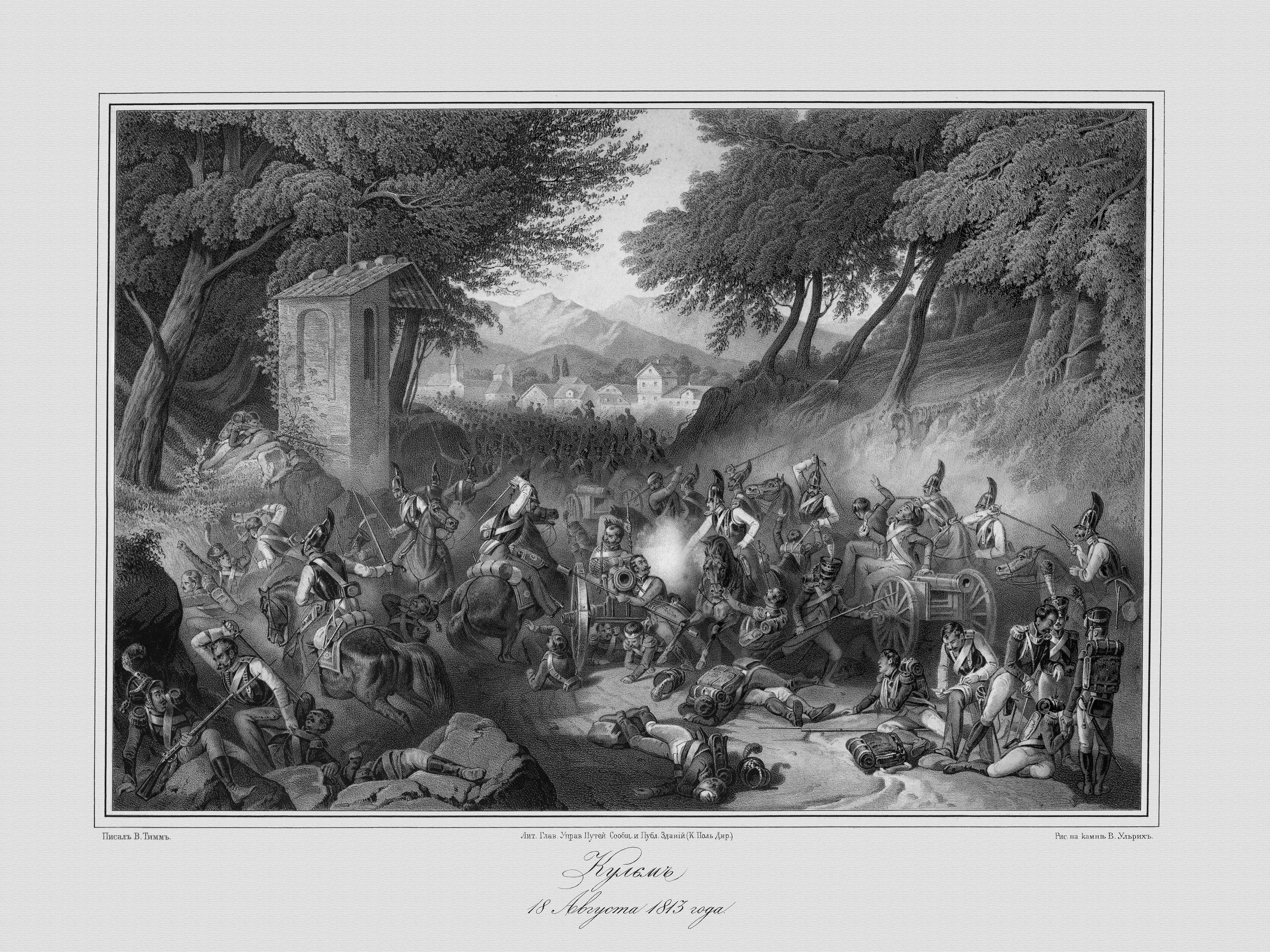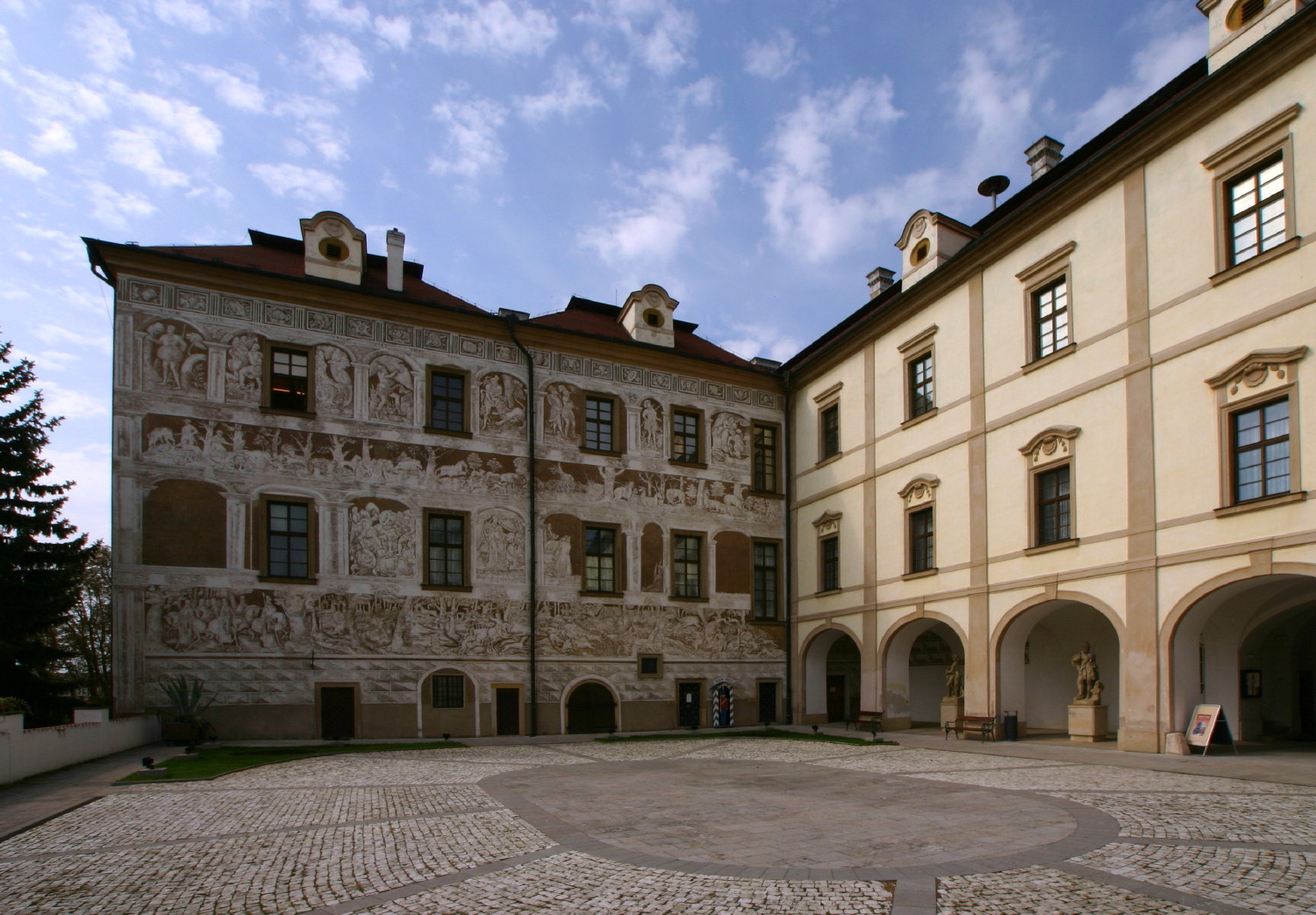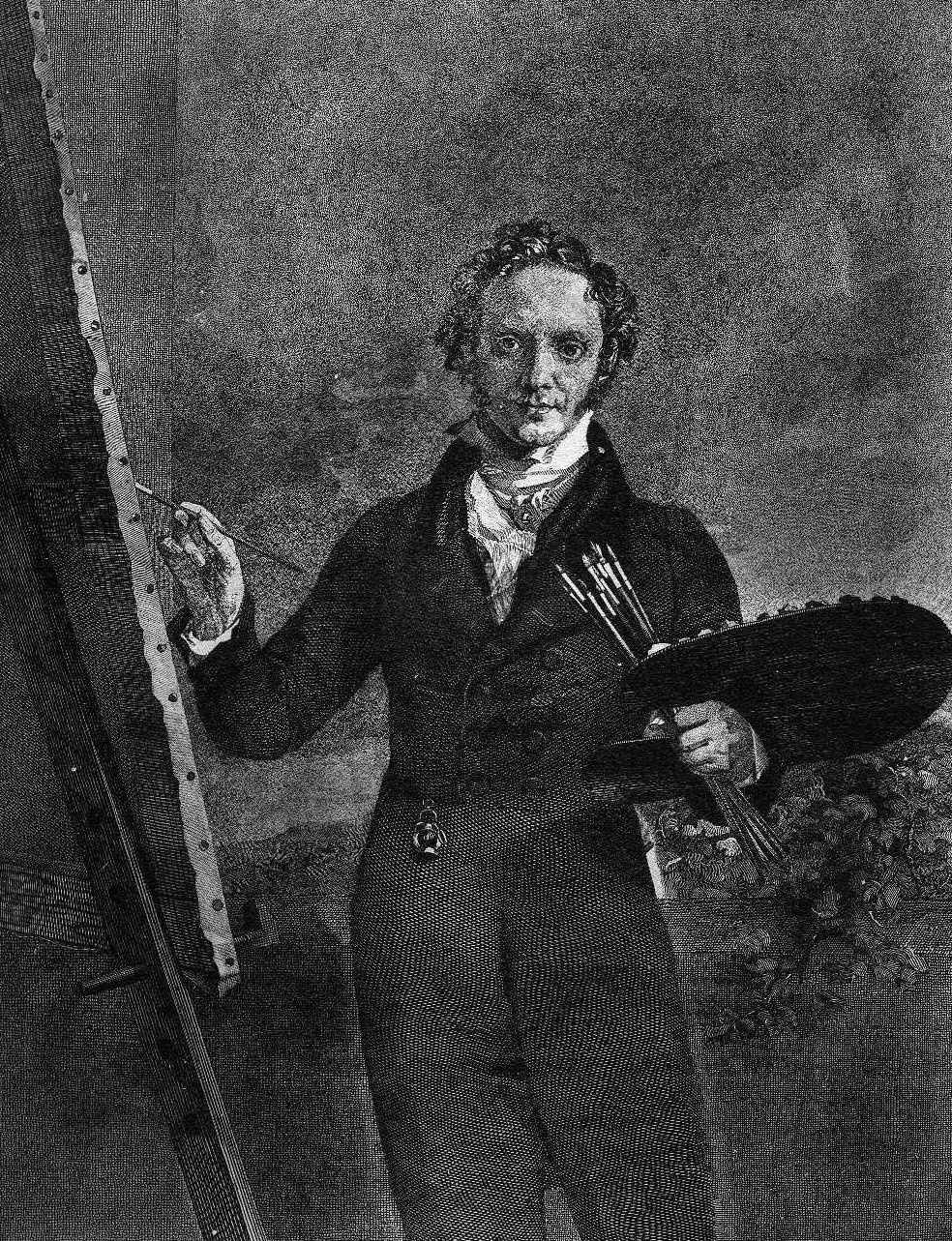|
Ostermann-Tolstoy
Count Alexander Ivanovich Count Osterman-Tolstoy (Russian: Александр Иванович Остерман-Толстой; 1770 – 12 February 1857) was a Russian nobleman and soldier in the era of the French Revolutionary Wars. He belonged to the famous Tolstoy family. Biography Count Alexander Ivanovich Osterman-Tolstoy was the son of the Lieutenant-General Ivan Matveevich Tolstoy (1746–1808) and his wife Agrafena Ilyinichna, nee Bibikova, "of ancient Tatar stock", and which, as per another member of the family, historian Nikolai Tolstoy, "may account for Alexander's dark complexion."Nikolai Tolstoy, ''The Tolstoys: Twenty-four Generations of Russian History'', Quill (1986), p. 92 He began his military service during the Turkish-Russian war of 1787-1791. In 1796 his two childless great-uncles, Fedor and Ivan Osterman, brothers of his paternal grandmother, gave him their family name, the title of count and a large fortune. Count Osterman-Tolstoy did not leave the militar ... [...More Info...] [...Related Items...] OR: [Wikipedia] [Google] [Baidu] |
Battle Of Kulm
:''See Battle of Chlumec for the 1126 battle at Kulm The Battle of Kulm was fought near the town Kulm () and the village Přestanov in northern Bohemia. It was fought on 29–30 August 1813, during the War of the Sixth Coalition. A French Corps under General Dominique Vandamme attacked Alexander Ostermann-Tolstoy's Russian Corps on 29 August. The next day, Friedrich von Kleist's Prussian Corps hit Vandamme in the rear while Russian and Austrian reinforcements attacked the French front and left. Vandamme was defeated with the loss of 13,000 men and 82 guns. Background Following the French victory at Dresden, Vandamme pursued the retreating allies. Napoleon sent Marshals Gouvion Saint Cyr and Auguste Marmont to support Vandamme's corps. With Vandamme in advance, Saint Cyr's and Marmont's corps brought up the rear. Vandamme caught up with Alexander Ivanovich Ostermann-Tolstoy's forces near the town of Kulm, eight kilometres northwest of Aussig (Ústí nad Labem, now in th ... [...More Info...] [...Related Items...] OR: [Wikipedia] [Google] [Baidu] |
Battle Of Czarnowo
The Battle of Czarnowo on the night of 23–24 December 1806 saw troops of the First French Empire under the eye of Emperor Napoleon I launch an evening assault crossing of the Wkra River against Lieutenant General Alexander Ivanovich Ostermann-Tolstoy's defending Russian Empire forces. The attackers, part of Marshal Louis-Nicolas Davout's III Corps, succeeded in crossing the Wkra at its mouth and pressed eastward to the village of Czarnowo. After an all-night struggle, the Russian commander withdrew his troops to the east, ending this War of the Fourth Coalition action. Czarnowo is located on the north bank of the Narew River north-northwest of Warsaw, Poland. Several other actions occurred during the same week. On the 23rd, Marshal Jean-Baptiste Bessières defeated a probe by Prussian troops at Bieżuń. On 24 December, an action occurred at Kołoząb and Sochocin where Marshal Pierre Augereau's VII Corps attempted to cross the Wkra. The French managed to secure a foo ... [...More Info...] [...Related Items...] OR: [Wikipedia] [Google] [Baidu] |
Johann Von Klenau
Johann Josef Cajetan Graf von Klenau, Freiherr von Janowitz ( cs, Jan hrabě z Klenové, svobodný pán z Janovic; 13 April 1758 – 6 October 1819) was a field marshal in the Habsburg army. Klenau, the son of a Bohemian noble, joined the Habsburg military as a teenager and fought in the War of Bavarian Succession against Prussia, Austria's wars with the Ottoman Empire, the French Revolutionary Wars, and the Napoleonic Wars, in which he commanded a corps in several important battles. In the early years of the French Revolutionary Wars, Klenau distinguished himself at the Wissembourg lines, and led a battle-winning charge at Handschuhsheim in 1795. As commander of the Coalition's left flank in the Adige campaign in northern Italy in 1799, he was instrumental in isolating the French-held fortresses on the Po River by organizing and supporting a peasant uprising in the countryside. Afterward, Klenau became the youngest lieutenant field marshal in the history of the Habsburg ... [...More Info...] [...Related Items...] OR: [Wikipedia] [Google] [Baidu] |
Tolstoy Family
The House of Tolstoy, or Tolstoi (russian: Толстой), is a family of Russian gentry that acceded to the high aristocracy of the Russian Empire. The name Tolstoy (Russian "Толстой") is itself derived from the Russian adjective "толстый" ("thick, stout, fat"). They are the descendants of Andrey Kharitonovich Tolstoy ("the Fat"), who moved from Chernigov to Moscow and served under Vasily II of Moscow in the 15th century. The "wild Tolstoys", as they were known in the high society of Imperial Russia, have left a lasting legacy in Russian politics, military history, literature, and fine arts. Origins The Tolstoys were a family of provincial Muscovite gentry who claimed their ancestry to a mythical Lithuanian nobleman named Indris stated by Pyotr Tolstoy as supposedly having arrived from the Holy Roman Empire to Chernigov in 1353, the very year when the city became part of Grand Duchy of Lithuania, together with his two sons Litvinos (or Litvonis, "Lithuanian") and ... [...More Info...] [...Related Items...] OR: [Wikipedia] [Google] [Baidu] |
Hanover Expedition
The Hanover Expedition, also known as the Weser Expedition, was a British invasion of the Electorate of Hanover during the Napoleonic Wars. Coordinated as part of an attack on France by the nations of the War of the Third Coalition, Third Coalition against Napoleon by William Pitt the Younger and Robert Stewart, Viscount Castlereagh, Lord Castlereagh, planning began for an invasion of French territories in July 1805. Hanover, previously a British possession, was chosen as the goal of the expedition, with Swedish and Russian forces under Gustav IV Adolf and Alexander Ivanovich Ostermann-Tolstoy brought in to support the endeavour. Key to the success of the invasion was the support of Prussia, a nation poised to threaten France but not as yet openly hostile to the country. George Don (British Army officer), Sir George Don commanded the British expedition and he arrived with an army of around 14,000 men at Cuxhaven in November. To bolster the expedition and to strengthen the resol ... [...More Info...] [...Related Items...] OR: [Wikipedia] [Google] [Baidu] |
Jakob Philipp Fallmerayer
Jakob Philipp Fallmerayer (10 December 1790 – 26 April 1861) was a German Tyrolean traveller, journalist, politician and historian, best known for his controversial discontinuity theory concerning the racial origins of the Greeks, and for his travel writings.Dream Nation: Enlightenment, Colonization, and the Institution of Modern Greece, Stathis Gourgouris p.142-143Sociolinguistic Variation and Change, Peter Trudgill, p.131The Fragments of Death, Fables of Identity: An Athenian Anthropography, Neni Panourgia - Social Science - 1995, p. 28 Biography Education Fallmerayer was born the seventh of ten children in Pairdorf ( it, Parara), a village in Tschötsch ( it, Scezze) near Brixen in Tyrol. At the time of Fallmerayer's birth, the region was incorporated in the Habsburg monarchy, in 1805 it became a part of Bavaria, and it belongs today to Italy. His parents were small farmers. From the age of seven Fallmerayer attended the local school in Tschötsch and worked as a sh ... [...More Info...] [...Related Items...] OR: [Wikipedia] [Google] [Baidu] |
Ivan Osterman
Count Ivan Andreyevich Osterman (russian: Иван Андреевич Остерман; 1725–1811) was a Russian statesman and the son of Andrei Osterman. After Osterman's father fell into disgrace, Ivan Osterman was transferred from the Imperial Guards to the regular army and then sent abroad, where he continued his education. In 1757, Osterman was in the Russian service again. He held diplomatic posts in Paris and Stockholm, where he would exercise considerable influence on Gustav III of Sweden. In 1774, Osterman was appointed a member of the Governing Senate. In 1783, Osterman was appointed Minister of foreign affairs of Imperial Russia, but would play only a secondary role in this post. His closest associates - Count Bezborodko, Prince Zubov, Fyodor Rostopchin - were the ones with real power, but they lacked the fluency in languages and oleaginous manner of address which Osterman was famed for. In 1796, Osterman was appointed the Chancellor of the Russian Empire, agai ... [...More Info...] [...Related Items...] OR: [Wikipedia] [Google] [Baidu] |
George Dawe
George Dawe (6 February 1781 – 15 October 1829) was an English portraitist who painted 329 portraits of Russian generals active during Napoleon's invasion of Russia for the Military Gallery of the Winter Palace. He relocated to Saint Petersburg in 1819, where he won acclaim for his work from the artistic establishment and complimentary verses by Pushkin. He was the son of Philip Dawe, a successful mezzotint engraver who also produced political cartoons relating to the events of the Boston Tea Party. One of his brothers was Henry Edward Dawe, also a portraitist. He died on 15 October 1829 in Kentish Town, United Kingdom. Life and career Early life and studies George Dawe was born on 6 February 1781 to Philip Dawe and Jane in Brewer Street, in the parish of St James's in Westminster. Philip was an artist and engraver in mezzotint who had worked with Hogarth and Joseph Mallord William Turner and who also produced satirical political cartoons about life in America which are ... [...More Info...] [...Related Items...] OR: [Wikipedia] [Google] [Baidu] |
Switzerland
). Swiss law does not designate a ''capital'' as such, but the federal parliament and government are installed in Bern, while other federal institutions, such as the federal courts, are in other cities (Bellinzona, Lausanne, Luzern, Neuchâtel, St. Gallen a.o.). , coordinates = , largest_city = Zürich , official_languages = , englishmotto = "One for all, all for one" , religion_year = 2020 , religion_ref = , religion = , demonym = , german: Schweizer/Schweizerin, french: Suisse/Suissesse, it, svizzero/svizzera or , rm, Svizzer/Svizra , government_type = Federalism, Federal assembly-independent Directorial system, directorial republic with elements of a direct democracy , leader_title1 = Federal Council (Switzerland), Federal Council , leader_name1 = , leader_title2 = , leader_name2 = Walter Thurnherr , legislature = Fe ... [...More Info...] [...Related Items...] OR: [Wikipedia] [Google] [Baidu] |
1770 Births
Year 177 ( CLXXVII) was a common year starting on Tuesday (link will display the full calendar) of the Julian calendar. At the time, it was known as the Year of the Consulship of Commodus and Plautius (or, less frequently, year 930 ''Ab urbe condita''). The denomination 177 for this year has been used since the early medieval period, when the Anno Domini calendar era became the prevalent method in Europe for naming years. Events By place Roman Empire * Lucius Aurelius Commodus Caesar (age 15) and Marcus Peducaeus Plautius Quintillus become Roman Consuls. * Commodus is given the title ''Augustus'', and is made co-emperor, with the same status as his father, Marcus Aurelius. * A systematic persecution of Christians begins in Rome; the followers take refuge in the catacombs. * The churches in southern Gaul are destroyed after a crowd accuses the local Christians of practicing cannibalism. * Forty-seven Christians are martyred in Lyon (Saint Blandina and Pothinus, bishop o ... [...More Info...] [...Related Items...] OR: [Wikipedia] [Google] [Baidu] |
1857 Deaths
Events January–March * January 1 – The biggest Estonian newspaper, ''Postimees'', is established by Johann Voldemar Jannsen. * January 7 – The partly French-owned London General Omnibus Company begins operating. * January 9 – The 7.9 Fort Tejon earthquake shakes Central and Southern California, with a maximum Mercalli intensity of IX (''Violent''). * January 24 – The University of Calcutta is established in Calcutta, as the first multidisciplinary modern university in South Asia. The University of Bombay is also established in Bombay, British India, this year. * February 3 – The National Deaf Mute College (later renamed Gallaudet University) is established in Washington, D.C., becoming the first school for the advanced education of the deaf. * February 5 – The Federal Constitution of the United Mexican States is promulgated. * March – The Austrian garrison leaves Bucharest. * March 3 ** France and the United Kingdom f ... [...More Info...] [...Related Items...] OR: [Wikipedia] [Google] [Baidu] |
Imperial Russian Army Generals
Imperial is that which relates to an empire, emperor, or imperialism. Imperial or The Imperial may also refer to: Places United States * Imperial, California * Imperial, Missouri * Imperial, Nebraska * Imperial, Pennsylvania * Imperial, Texas * Imperial, West Virginia * Imperial, Virginia * Imperial County, California * Imperial Valley, California * Imperial Beach, California Elsewhere * Imperial (Madrid), an administrative neighborhood in Spain * Imperial, Saskatchewan, a town in Canada Buildings * Imperial Apartments, a building in Brooklyn, New York * Imperial City, Huế, a palace in Huế, Vietnam * Imperial Palace (other) * Imperial Towers, a group of lighthouses on Lake Huron, Canada * The Imperial (Mumbai), a skyscraper apartment complex in India Animals and plants * ''Cheritra'' or imperial, a genus of butterfly Architecture, design, and fashion * Imperial, a luggage case for the top of a coach * Imperial, the top, roof or second-storey compartment of a c ... [...More Info...] [...Related Items...] OR: [Wikipedia] [Google] [Baidu] |





